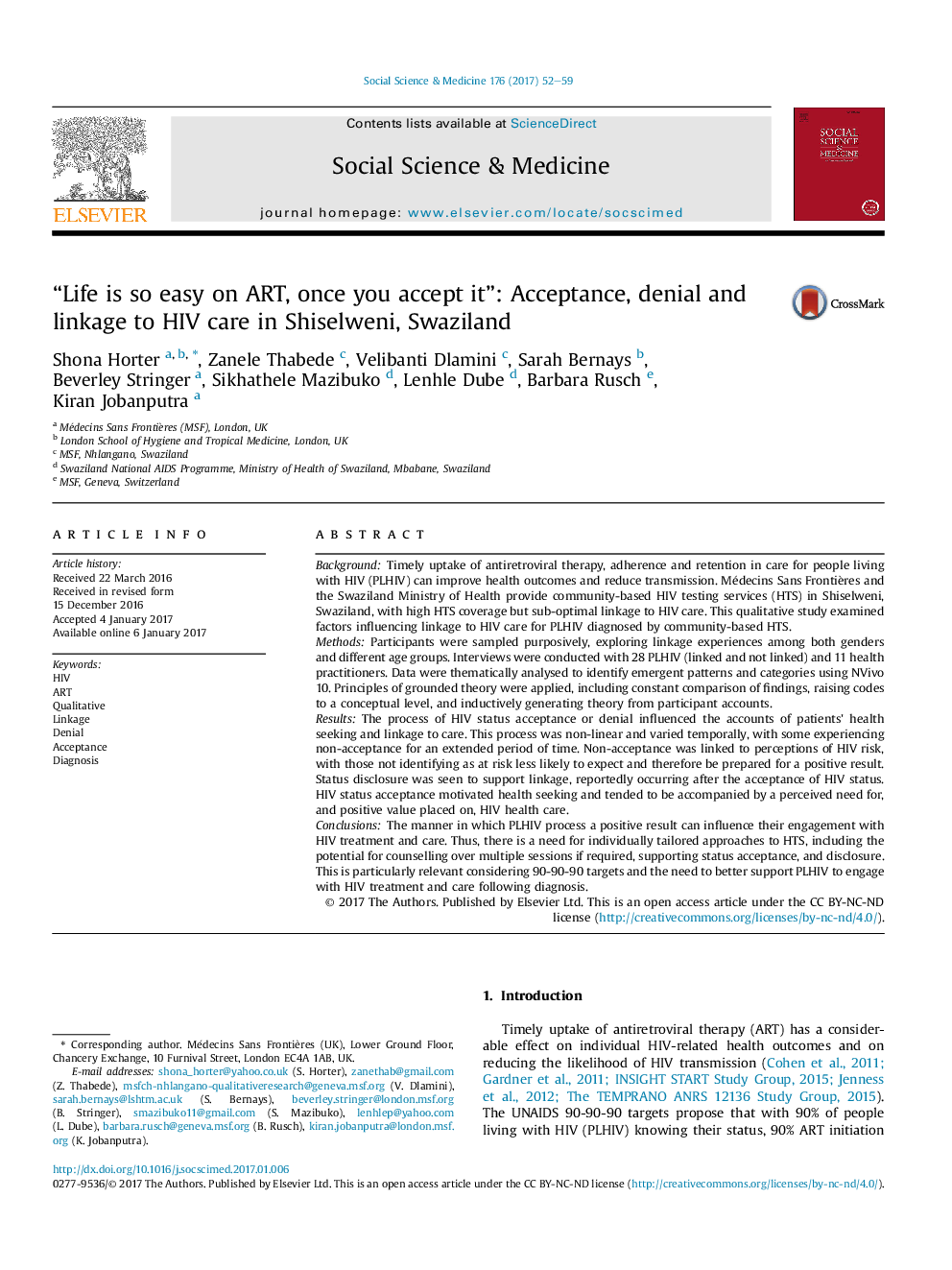| کد مقاله | کد نشریه | سال انتشار | مقاله انگلیسی | نسخه تمام متن |
|---|---|---|---|---|
| 5046746 | 1475993 | 2017 | 8 صفحه PDF | دانلود رایگان |

- Acceptance of HIV status appeared key for success of test and start initiatives.
- Disbelief on receiving a positive diagnosis can hinder access to care.
- Disclosure of HIV status supported linkage to HIV care.
- There are perceived benefits of accessing treatment early, even when asymptomatic.
- Despite high rates of generalised HIV, many did not identify personal HIV risk.
BackgroundTimely uptake of antiretroviral therapy, adherence and retention in care for people living with HIV (PLHIV) can improve health outcomes and reduce transmission. Médecins Sans Frontières and the Swaziland Ministry of Health provide community-based HIV testing services (HTS) in Shiselweni, Swaziland, with high HTS coverage but sub-optimal linkage to HIV care. This qualitative study examined factors influencing linkage to HIV care for PLHIV diagnosed by community-based HTS.MethodsParticipants were sampled purposively, exploring linkage experiences among both genders and different age groups. Interviews were conducted with 28 PLHIV (linked and not linked) and 11 health practitioners. Data were thematically analysed to identify emergent patterns and categories using NVivo 10. Principles of grounded theory were applied, including constant comparison of findings, raising codes to a conceptual level, and inductively generating theory from participant accounts.ResultsThe process of HIV status acceptance or denial influenced the accounts of patients' health seeking and linkage to care. This process was non-linear and varied temporally, with some experiencing non-acceptance for an extended period of time. Non-acceptance was linked to perceptions of HIV risk, with those not identifying as at risk less likely to expect and therefore be prepared for a positive result. Status disclosure was seen to support linkage, reportedly occurring after the acceptance of HIV status. HIV status acceptance motivated health seeking and tended to be accompanied by a perceived need for, and positive value placed on, HIV health care.ConclusionsThe manner in which PLHIV process a positive result can influence their engagement with HIV treatment and care. Thus, there is a need for individually tailored approaches to HTS, including the potential for counselling over multiple sessions if required, supporting status acceptance, and disclosure. This is particularly relevant considering 90-90-90 targets and the need to better support PLHIV to engage with HIV treatment and care following diagnosis.
Journal: Social Science & Medicine - Volume 176, March 2017, Pages 52-59